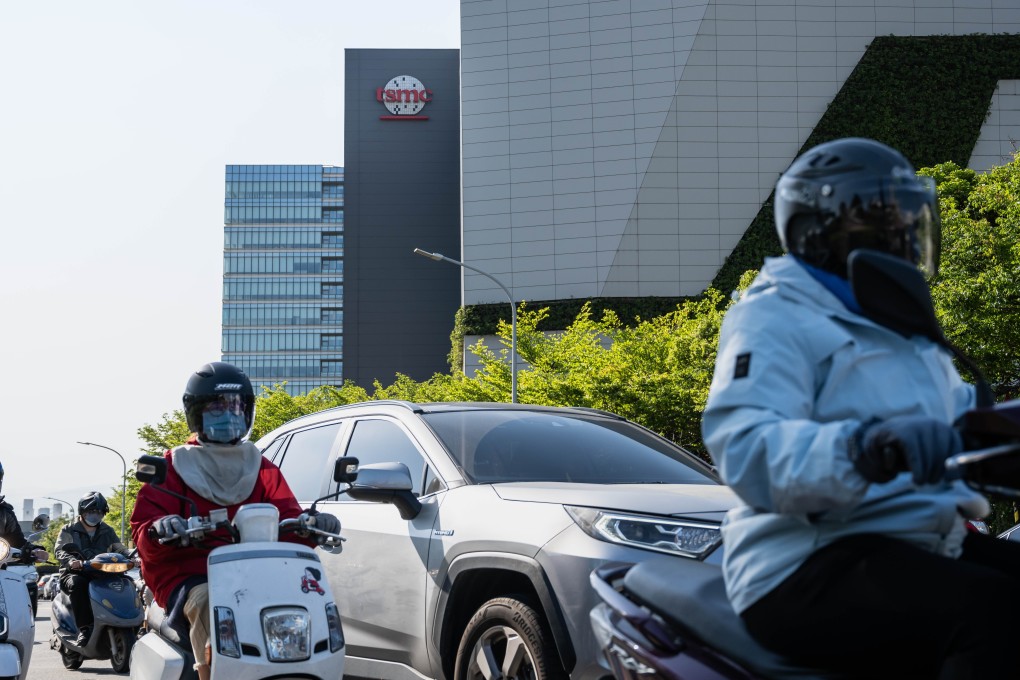Taiwan says US vaccine aid would help shield its chip industry as Biden seeks information sharing to ease supply crunch
- Taiwan is facing hundreds of untraceable infections after a year of being one of the biggest success stories of Covid-19 containment
- The Biden administration is exploring how to help chip makers and buyers share supply chain information to alleviate the global supply crisis

“While for now the uptick hasn’t had an impact, if it lasts too long there could be logistical problems,” James Lee, director general of Taipei’s cultural and economic office in New York, said in an interview Thursday. “That’s why it’s urgent. We hope the international community can help release vaccines as soon as possible to help control the outbreak.”
Beyond the humanitarian plea for help fighting the pandemic, Lee’s argument may resonate because of deep concern in US government and business about the shortage of chips used in everything from mobile phones to automobiles.
Taiwan is facing hundreds of untraceable infections after a year of being one of the biggest success stories of Covid-19 containment. The new surge has been confined so far mainly to the greater Taipei area and hasn’t affected the operations of Taiwan’s major technology companies, including Taiwan Semiconductor Manufacturing Co (TSMC), as most of their operations are located farther south.
Taiwan’s government earlier this week pledged to try to keep the world supplied with chips and projected a limited impact from its worst outbreak so far. Keeping up production is critical not just for Taiwan’s growth, but because the island is the world’s main supplier of advanced computer chips.
The concentration of chip manufacturing in Taiwan and a global shortage fuelled in part by the Covid-19 pandemic has quickly become a geopolitical issue, with governments around the world racing to secure additional supplies and vowing to build their own locally-based chip-manufacturing industries.